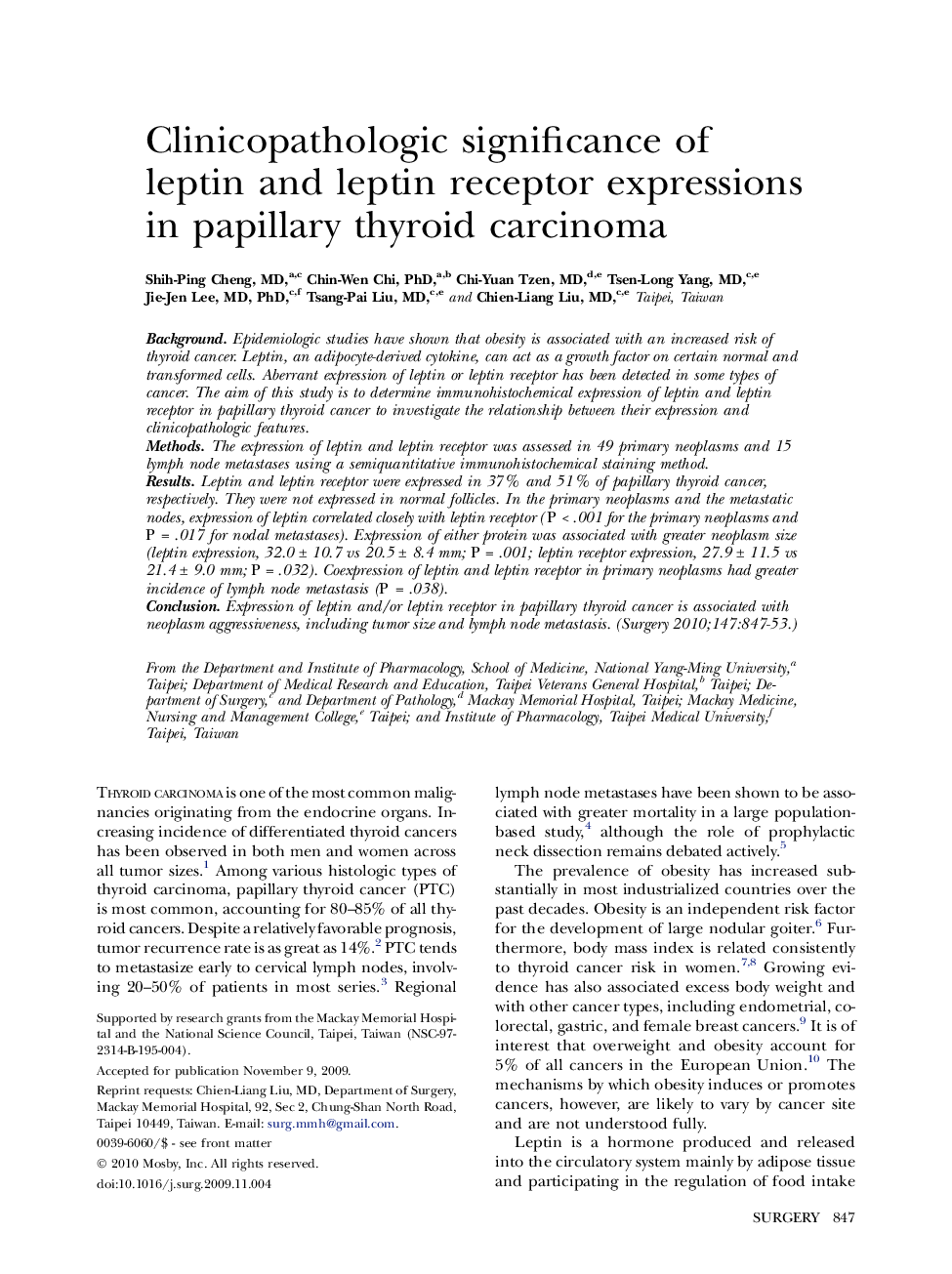| Article ID | Journal | Published Year | Pages | File Type |
|---|---|---|---|---|
| 4308739 | Surgery | 2010 | 7 Pages |
BackgroundEpidemiologic studies have shown that obesity is associated with an increased risk of thyroid cancer. Leptin, an adipocyte-derived cytokine, can act as a growth factor on certain normal and transformed cells. Aberrant expression of leptin or leptin receptor has been detected in some types of cancer. The aim of this study is to determine immunohistochemical expression of leptin and leptin receptor in papillary thyroid cancer to investigate the relationship between their expression and clinicopathologic features.MethodsThe expression of leptin and leptin receptor was assessed in 49 primary neoplasms and 15 lymph node metastases using a semiquantitative immunohistochemical staining method.ResultsLeptin and leptin receptor were expressed in 37% and 51% of papillary thyroid cancer, respectively. They were not expressed in normal follicles. In the primary neoplasms and the metastatic nodes, expression of leptin correlated closely with leptin receptor (P < .001 for the primary neoplasms and P = .017 for nodal metastases). Expression of either protein was associated with greater neoplasm size (leptin expression, 32.0 ± 10.7 vs 20.5 ± 8.4 mm; P = .001; leptin receptor expression, 27.9 ± 11.5 vs 21.4 ± 9.0 mm; P = .032). Coexpression of leptin and leptin receptor in primary neoplasms had greater incidence of lymph node metastasis (P = .038).ConclusionExpression of leptin and/or leptin receptor in papillary thyroid cancer is associated with neoplasm aggressiveness, including tumor size and lymph node metastasis.
